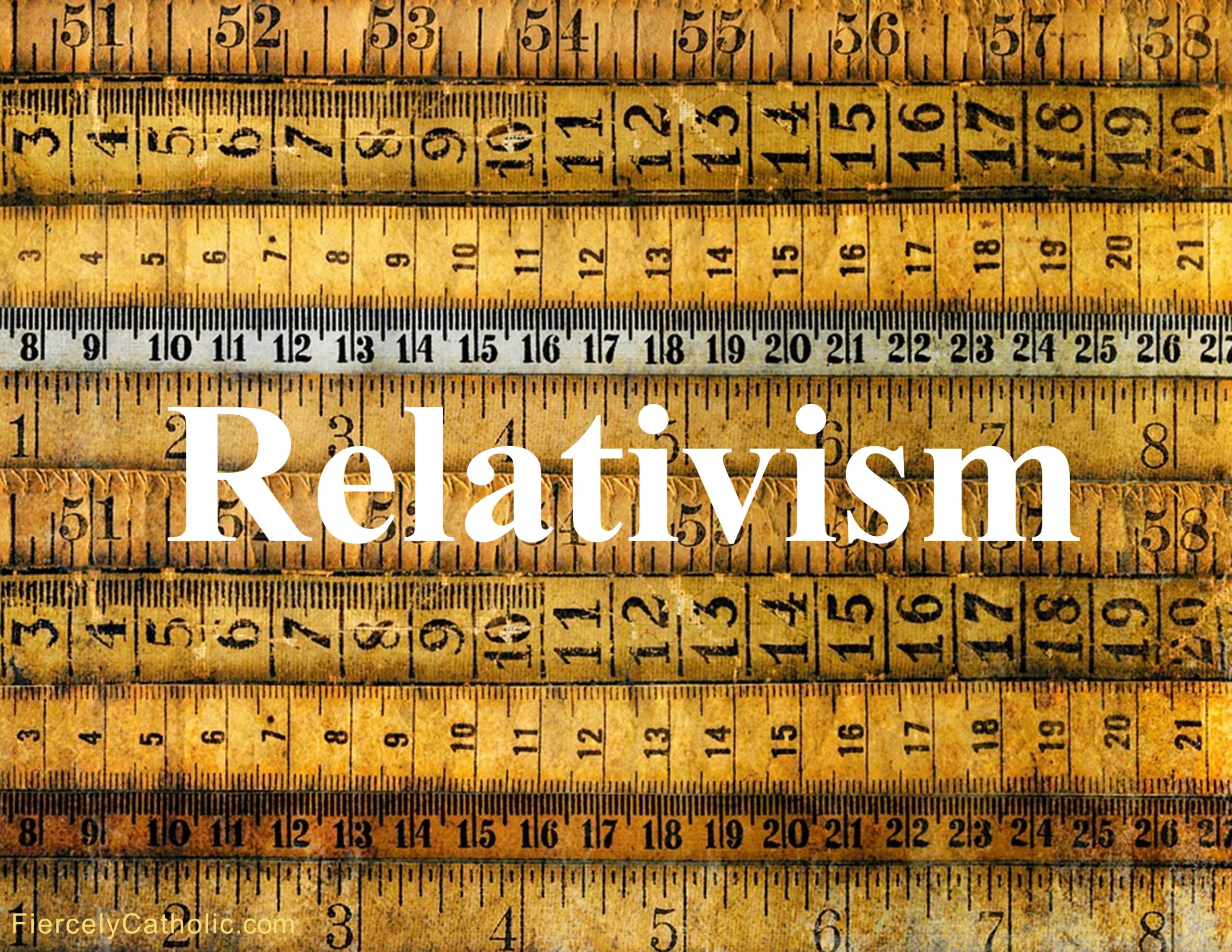The discourse surrounding moral relativism within the Catholic Church has prompted a variety of interpretations and responses, engendering both support and critique. Historically, the Church has maintained an objective moral framework based largely on its doctrinal teachings and the natural law. However, the contemporary discourse on moral relativism challenges these entrenched views, positing that morality is not absolute but rather shaped by cultural, social, and individual perspectives. This exploration aims to illuminate the intricacies of moral relativism as viewed through the lens of Catholic teachings and the implications for broader ethical considerations.
To commence, it is crucial to delineate what is meant by ‘moral relativism’. At its core, this concept suggests that ethical standards and moral practices are not universally applicable and instead vary based on contextual factors. This notion contrasts sharply with the Catholic Church’s historical alignment with moral absolutism, whereby certain actions are intrinsically right or wrong, independent of external influences or societal interpretation. This ideological schism raises pressing questions: Can morality truly exist devoid of context? And if so, what does that signify for the Catholic doctrine, which posits a definitive moral compass guided by divine authority?
The rise of moral relativism is underpinned by significant cultural shifts. As globalization fosters interconnectivity, individuals are increasingly exposed to diverse worldviews and ethical frameworks. The digital age further amplifies these perspectives, enabling myriad voices to engage in ethical debates challenged by inclusivity and pluralism. Within this milieu, the Church faces the task of reconciling its age-old teachings with the evolving moral landscape of contemporary society. The tension is palpable; asserting a rigid moral framework in a pluralistic society risks alienation, yet embracing relativism can potentially dilute the Church’s core beliefs.
Within the context of Catholic moral teachings, some theologians argue that an understanding of moral relativism could enhance the Church’s mission. Emphasizing compassion and dialogue, proponents contend that the Church should recognize the validity of differing moral viewpoints. This approach does not necessarily advocate for a complete abandonment of established values but rather encourages a more nuanced discourse that respects individual conscience. By fostering open dialogue, the Church can engage meaningfully with adherents and non-adherents alike, promoting a richer and more inclusive understanding of morality.
Additionally, the notion of situational ethics emerges as a notable consideration in discussions of moral relativism. The situational ethics perspective posits that the morality of an action is contingent upon the specifics of a situation rather than on fixed laws. Craig’s situation is instructive here: when faced with ethical dilemmas, individuals often grapple with the implications of their decisions. The distinction made by situational ethics could empower Catholics to consider the broader context of their choices, fostering empathy and understanding rather than judgment based on rigid principles.
Nevertheless, adopting a relativistic lens poses substantial challenges for the Church. The fear of moral ambiguity presents a formidable barrier, as established norms provide a sense of security and guidance for adherents. Without a steadfast moral foundation, the concern arises that individuals may falter in their ethical commitments. This uncertainty invites a critical examination of how the Church can uphold its doctrinal beliefs while also accommodating the complexities of modern moral discourse.
The Church’s social teaching has, at times, shown a remarkable adaptability to changing societal values. For example, the Vatican’s increasing focus on issues such as climate change, social justice, and human rights reflects an understanding that the moral fabric of society is multifaceted. This adaptability stands in contrast to rigid moral absolutism, suggesting that while fundamental doctrines may remain unchanged, the application of these principles can evolve to address contemporary challenges. This pivot necessitates an examination of how the Church can advocate for an ethical response that resonates with current moral inquiries.
At the intersection of moral relativism and Catholic doctrine lies the principle of conscience. The Church has long upheld the significance of conscience as the individual’s moral compass, emphasizing the need for personal discernment. In this regard, moral relativism can coexist with a Catholic understanding of conscience; by appreciating the diversity of experiences that shape individual moral reasoning, the Church can advocate for conscience formation that considers both tradition and contextual nuance.
The trajectory of moral relativism within the Catholic Church ultimately prompts an essential reflection on authority and autonomy. The challenge of reconciling traditional teachings with contemporary ethical dilemmas serves as a crucible for spiritual growth. As individuals grapple with the implications of moral relativism, they are urged to engage in rigorous self-examination and open discourse, cultivating a deeper understanding of their faith and its application in a rapidly changing world.
In conclusion, the dialogue on moral relativism within the Catholic Church presents an opportunity for transformative reflection. By fostering open dialogue and embracing the complexities of modern moral considerations, the Church can navigate the tenuous balance between tradition and evolution. Engaging with the evolving perspectives of its followers, the Church stands at a pivotal juncture, tasked with navigating the currents of cultural change while remaining anchored in its fundamental principles. This endeavor promises not only to enrich the faith tradition but also to engage with a world increasingly characterized by its diversity of thought and belief.
